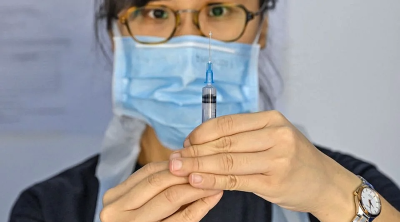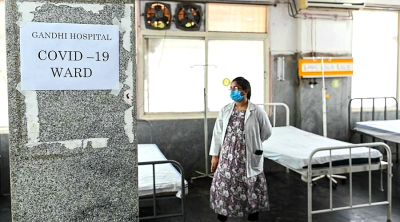Public health policy should be driven by evidence and not fear.
The COVID-19 vaccines were designed to prevent severe disease, not elimination of SARS-CoV2 virus transmission.
Therefore, vaccination is very unlikely to prevent COVID-19 in the long term.
The nature of the SARS-CoV2 virus and its variants makes it likely that a large proportion of children will get COVID-19 in the coming years.
As such, a one-off vaccination program will likely not prevent their chances of getting COVID-19 in the long term.
The main concern of COVID-19 is not the asymptomatic or mild spectrum of the disease but the risk of severe COVID which results in ICU hospitalizations and deaths.
The risk of severe disease and deaths in children is very low. It was estimated that the incidence fatality rate for COVID-19 was 2.5 per 100,000 cases in those aged 0 to 17 (US CDC, Updated Nov 16, 2021).
The incidence fatality rates are estimated as the number of deaths divided by the true number of infections.
 In Malaysia, the cumulative case fatality rates of COVID-19 in children aged below 12 years old are similar to those aged 12 to 17, but approximately 250 times lower than those aged above 50.
In Malaysia, the cumulative case fatality rates of COVID-19 in children aged below 12 years old are similar to those aged 12 to 17, but approximately 250 times lower than those aged above 50.
The low absolute risks of severe disease and deaths result in drastically diminished health returns of vaccinating children compared to higher risk groups like the elderly.
This pandemic has been a stress test to many chronically underfunded healthcare systems with similar results.
The prognosis of cases worsens when the health system gets overwhelmed.
Creative and out-of-the-box solutions are necessary to help our country be more resilient and better prepared for the next year.
Vaccination of children in Malaysia will not prevent the occurrence of COVID-19 variants because Malaysia’s population is very small compared to the global population.
The major driver for the emergence of newer variants is the global incidence of COVID -19. This may only be sufficiently addressed with global vaccine equity.
A population-based approach should be used for such a young cohort. The evidence base for the need of vaccinations among younger children is still evolving. As such, we recommend that further evidence is needed at this moment before recommending and implementing a vaccination program for those under 12 years old.
We caution against the hasty implementation of any interventions before sufficient evidence base has been accrued.
(Prof Dr. Sanjay Rampal, Faculty of Medicine, Universiti Malaya; Datuk Dr Lokman Hakim Sulaiman, International Medical University Malaysia; Datuk Dr Zainal Ariffin Omar, Public Health Medicine Specialist; Dr. Sharmini Selvarajah, Sharmini Selvarajah Consulting; Dr. Tharani Loganathan, Faculty of Medicine, Universiti Malaya.)
ADVERTISEMENT
ADVERTISEMENT








































